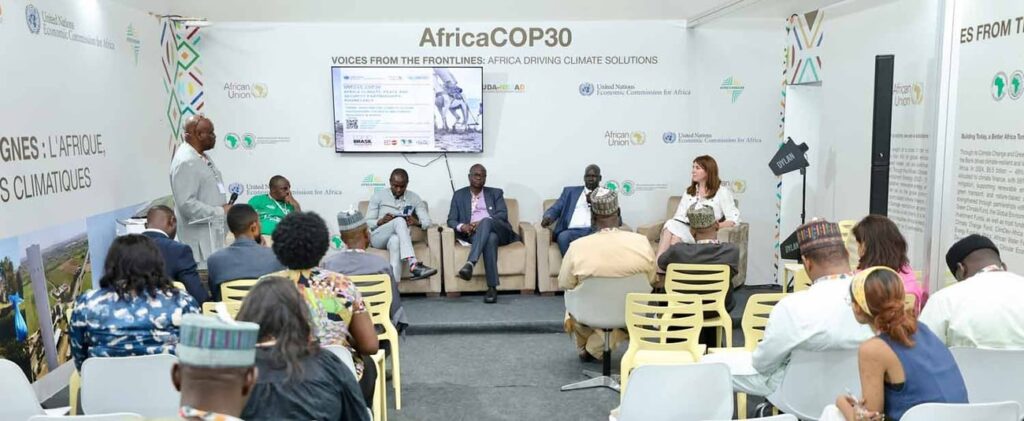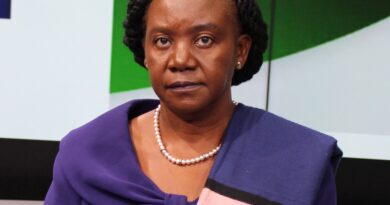AfDB Boosts Funding to Tackle Africa’s Climate and Security Risks
The African Development Bank (AfDB) has reaffirmed its commitment to tackling the growing link between climate impacts, conflict and fragility across Africa. The announcement was made during a high-level roundtable at COP30 in Belém, Brazil, which focused on strengthening partnerships for peace and climate resilience.
The event, titled “Adapting for Stability: Scaling Partnerships for Peace and Climate Resilience in Africa”, brought together UN agencies, the African Union, civil society groups and development finance institutions to assess how climate change is intensifying security threats on the continent.
Africa remains the world’s most climate-vulnerable region. Nine of the ten most climate-affected countries are located on the continent. At the same time, twelve of the nineteen countries most affected by armed conflict are also in Africa. Experts say this overlap highlights the urgent need for integrated climate and security solutions.
Dr Al Hamndou Dorsouma, Manager for Climate Change and Green Growth at the AfDB, highlighted the scale of the crisis. “In 2024 alone, climate disasters caused 9.8 million new internal displacements in Africa,” he said. “Declining rainfall and water scarcity are worsening competition for natural resources and sparking inter-community conflict in regions such as Ethiopia, Darfur, Kenya, Nigeria and across the Sahel.”
Participants agreed that climate action cannot succeed without peace. “There can be no implementation of climate projects without peace. We cannot fight climate change without peace,” said Nazanine Moshiri, Senior Advisor on Climate, Peace and Strategic Partnerships at the Berghof Foundation.
The AfDB outlined its three-part response. This includes the Strategy for Addressing Fragility and Building Resilience, the Transition Support Facility and the Climate Change and Green Growth Strategic Framework for 2030. The Bank has also strengthened the design of its operations by integrating assessments of fragility and climate vulnerability.
A major financial instrument within this approach is the Climate Action Window, launched in 2023 under the African Development Fund. With funding of 450 million US dollars, it has already supported 59 climate action projects in African countries facing fragility and climate pressure. The projects have a combined value of 386 million US dollars.
“Investing in early warning systems and adaptation is both a humanitarian necessity and an economically sound decision,” Dorsouma said. “Every dollar invested in climate adaptation generates an estimated return of between two and ten dollars.”
Civil society representatives also stressed the importance of local participation. Charles Mwangi, Head of Programmes at the Pan-African Climate Justice Alliance, said community groups must be included in policy discussions to prevent local injustices and reduce risks that could lead to conflict.



